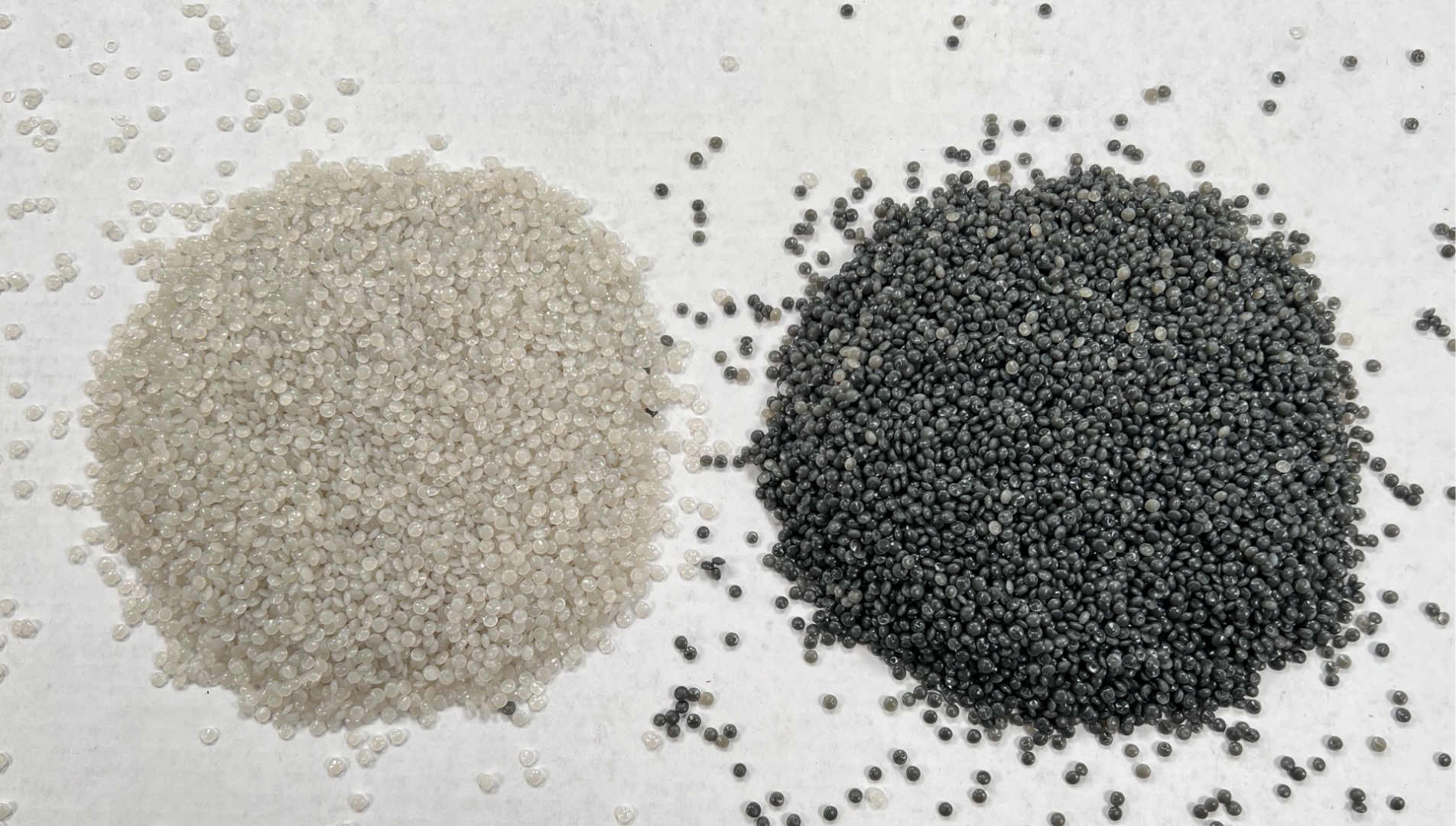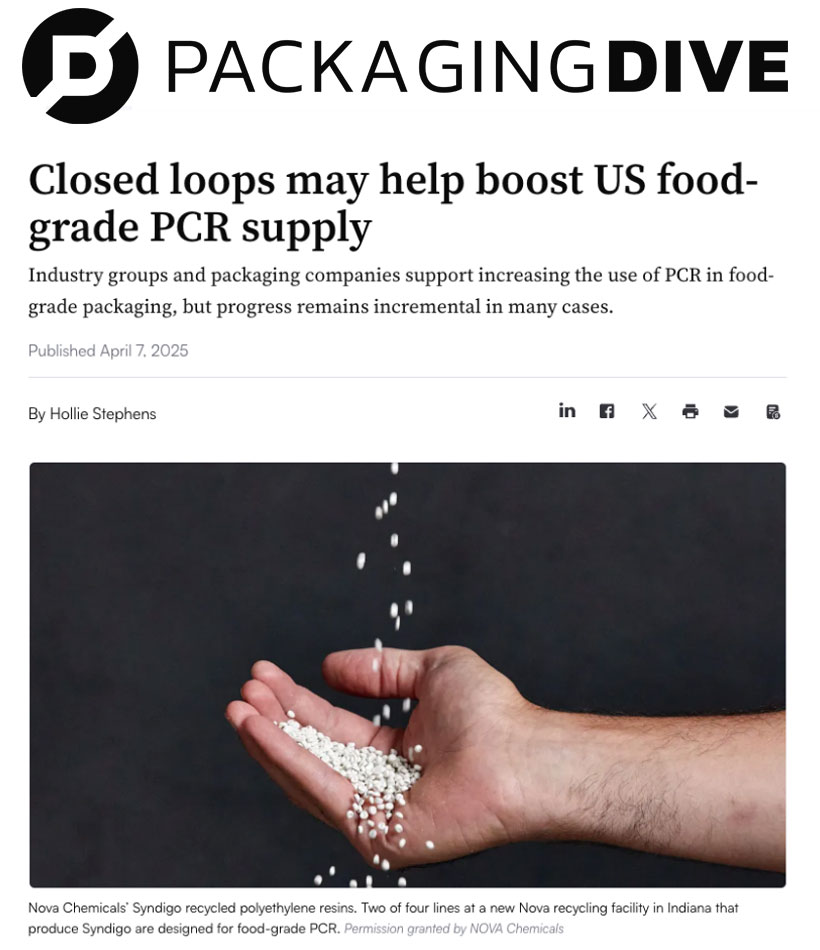
The packaging industry is increasingly turning to post-consumer recycled (PCR) content to reduce reliance on virgin plastics and promote sustainability. A recent article from Packaging Dive highlights the efforts of industry players, including Atlantic Packaging, to leverage B2B closed loops, among other strategies, to increase supply. This transition presents both challenges and opportunities, as industry leaders share their insights on how to navigate this complex landscape.
Avoiding Contamination in the Recycling Stream
While studies cited in the article show that the majority of consumers surveyed agreed that companies should increase their use of packaging made from recycled materials, and more states are requiring increased use of PCR in plastic beverage containers, there are still obstacles including infrastructure challenges as a barrier to increasing the supply needed to provide consistency and quality.
One of the primary concerns in using PCR in food-grade packaging is avoiding contamination in the recycling stream. Contamination can occur from seemingly small actions, such as placing a paper label on a plastic film, as Atlantic Packaging sneior manager, Stewart Whitmire, notes in the article. This can significantly hinder the recycling process and reduce the quality of the recycled material. Therefore, careful consideration of the materials used in packaging is essential to ensure they do not contaminate the recycling stream.
Strategies for Reducing Virgin Plastic Use
Increasing the use of PCR is a crucial step towards sustainability, but it is not the only strategy available. Brands can also consider lightweighting and downgauging, which involve reducing the amount of plastic used in packaging without compromising its functionality. These methods can be more viable options for some brands, allowing them to achieve their sustainability goals while maintaining the performance of their packaging.
Quality and Performance of PCR
Not all PCR is created equal, and the quality of PCR must be high enough to ensure that it does not compromise the performance of the packaging. If the PCR does not meet specific performance criteria, it could lead to the use of more plastic rather than less. The goal is to find instances where virgin plastic can be replaced with PCR on a one-for-one basis, ensuring that the packaging remains effective while reducing its environmental impact.
Closed Loops
Closed loops and business-to-business (B2B) sourcing are seen as effective strategies to generate more high-quality PCR. Atlantic Packaging is actively engaging in closed loop programs with our customers to enhance sustainability. One notable example is our partnership with Coca-Cola Consolidated. Through our Stretch Film Recycling Program, Atlantic Packaging is creating post-consumer recycled (PCR) resin from used and recaptured stretch film. This pilot closed-loop system reclaims high-quality film sold to Coca-Cola Consolidated, allowing it to be reused in new stretch film applications.
The program involves both partneres – Atlantic and Coca-Cola Consolidated – collecting and sorting bales of used performance stretch film, which are then shredded, granulated, filtered, extruded, and deodorized on-site at Atlantic’s Packaging Solution Center to produce top-quality PCR resin pellets. These pellets are sent to film manufacturing partners to be transformed into new rolls of stretch film containing recycled content. This initiative reduces the use of virgin material and promotes a circular economy.
Atlantic Packaging’s Perspective on PCR
Atlantic Packaging provides a PCR overview in our Deep Dive article: PCR in Sustainable Packaging – A Closer Look at Post-Consumer Recycled Content in Plastic Packaging. We define PCR as materials that have already been used by consumers, recycled, and then repurposed into new products, including packaging.
From an environmental sustainability perspective, we highlight four main reasons to incorporate PCR into packaging:
- Reducing the use of virgin materials: Incorporating recycled content reduces the demand for virgin raw materials.
- Lowering carbon footprint: Using PCR can result in lower greenhouse gas emissions compared to producing new plastic.
- Supporting recycling markets: By creating demand for recycled materials, companies can help support and stabilize recycling markets.
- Meeting consumer expectations: Increasingly, consumers expect brands to use sustainable materials in their packaging.
The transition to using more PCR in food-grade packaging is a complex but necessary step towards sustainability. By engaging cross-functional teams within companies looking to increase use of PCR; focusing on quality and performance; and considering alternative methods like lightweighting and downgauging, the packaging industry can make significant strides in reducing its environmental impact. Industry leaders, including those at Atlantic Packaging, are providing valuable insights and strategies to help navigate these challenges and promote a more sustainable future.

